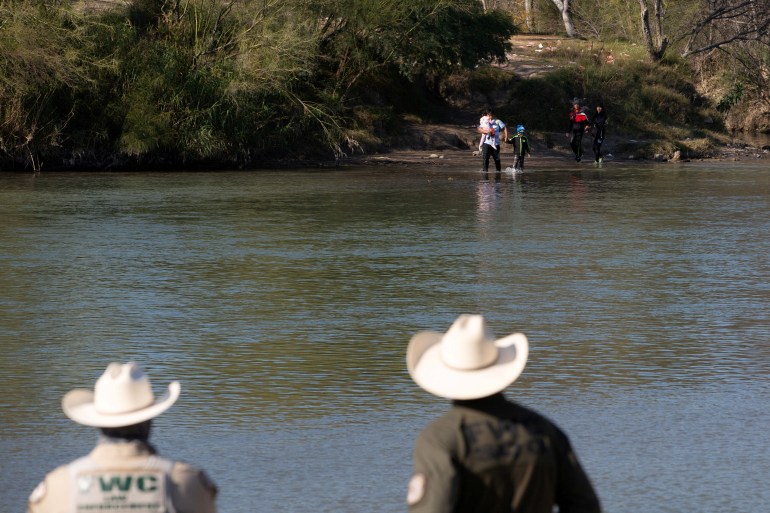The law, known as Senate Bill 4, was scheduled to take effect Saturday and would allow state agents to arrest people suspected of entering the country illegally.
A U.S. Supreme Court justice has temporarily blocked a bill that would give Texas authorities strict powers to arrest and deport immigrants and refugees who enter the country without documentation.
Justice Samuel Alito's order Monday puts the bill on hold until at least next week, when the court is expected to take another look.
Opponents say the measure, which would give state authorities broad powers to arrest, prosecute and issue deportation orders for people who cross the border illegally from Mexico, is the first time a state has cracked down on immigration since Arizona's law more than a decade ago. It claims to be the most dramatic attempt yet. .
The law, known as Senate Bill 4, was scheduled to take effect Saturday under a decision by the conservative-leaning 5th Circuit Court of Appeals. It was postponed to March 13 by Mr. Alito's order. The delay came just hours after the Justice Department asked the Supreme Court to intervene.
“Make no mistake: SB 4 circumvents federal immigration authorities and threatens the integrity of our Constitution and laws,” said coalition groups including the American Civil Liberties Union, which has filed legal action against the bill. said in a statement.
Republican Texas Gov. Greg Abbott signed the law in December as part of a series of border enhancements that test the limits of how far the state can go to stop migrants from entering the country.
The bill would allow state authorities to arrest people suspected of entering the country illegally. Those arrested could face misdemeanor charges if they do not agree to a Texas judge's order to leave the country.
Those who do not leave despite being ordered to do so may be rearrested and face more serious charges.

“An ongoing crisis at our southern border.”
The Justice Department told the Supreme Court that the law would significantly change “the status quo that has existed between the United States and the states regarding immigration for almost 150 years.”
It also argued that the law would have a “significant and immediate adverse effect” on the country's relations with Mexico and would “cause disruption” to the enforcement of federal immigration laws in Texas.
The federal government cited a 2012 Supreme Court ruling on an Arizona law that allows police to arrest people for federal immigration violations, a decision dubbed a “show me your documents” bill by opponents. There are many.
A divided high court ruled that Washington's impasse over immigration reform did not justify state intervention.
The Supreme Court gave Texas until March 11 to respond.
The Texas Attorney General's Office said in a statement that the bill reflects federal law and was adopted “to address the ongoing crisis at our southern border that is hurting Texans more than anyone else.” .
The government's emergency request to the Supreme Court comes after a federal appeals court over the weekend blocked U.S. District Judge David Ezra's blanket dismissal of the law.
In Thursday's 114-page ruling, Ezra condemned Texas' immigration enforcement and dismissed Republican claims of an ongoing “invasion” along the southern border with record numbers of illegal border crossings.
Ezra added that the law violates the Supremacy Clause of the U.S. Constitution, conflicts with federal immigration law, and could impair U.S. foreign relations and treaty obligations.
The fight over Texas immigration law is one of several legal disputes between Texas officials and the Biden administration over how much the state can do to secure the Texas-Mexico border and prevent illegal border crossings. be.
Several Republican governors support Mr. Abbott's efforts, saying the federal government is not doing enough to enforce current immigration laws.

